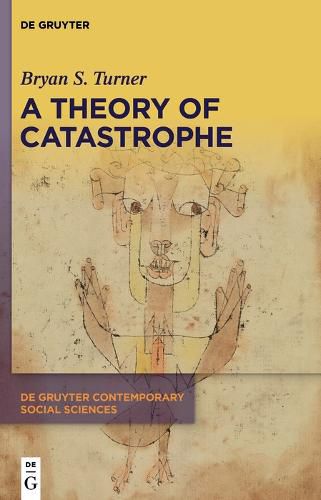Readings Newsletter
Become a Readings Member to make your shopping experience even easier.
Sign in or sign up for free!
You’re not far away from qualifying for FREE standard shipping within Australia
You’ve qualified for FREE standard shipping within Australia
The cart is loading…






Sociology has developed theories of social change in the fields of evolution, conflict and modernization, viewing modern society as essentially unstable and conflict driven. However, it has not seriously studied catastrophe. A Theory of Catastrophe develops a sociology of catastrophes, comparing natural, social and political causes and consequences, and the social theories that might offer explanations.
A catastrophe is a general and systematic breakdown of social and political institutions resulting, among other things, in what we could call a catastrophe consciousness.
The Greek 'cata-strophe' formed the conclusion to a dramatic sequence of strophes. The cata-strophe was the final act of a drama, namely its denouement. Catastrophic denouements are without hope: genocides, military occupations, plagues, famines and earthquakes. A Theory of Catastrophe analyzes Pompeii, the Black Death, colonial genocide in North America, WWI and the Spanish Flu, and Nazi Germany and finally this century: terrorism, new wars, climate change and pandemics.
As a study of sociological theory, Bryan Turner discusses Spengler's Decline of the West, Marxism as a theory of catastrophic capitalism, messianic movements, Weber on modernity, and risk society. He concludes by comparing optimism and pessimism, and the idea of inter-generational justice.
$9.00 standard shipping within Australia
FREE standard shipping within Australia for orders over $100.00
Express & International shipping calculated at checkout
Sociology has developed theories of social change in the fields of evolution, conflict and modernization, viewing modern society as essentially unstable and conflict driven. However, it has not seriously studied catastrophe. A Theory of Catastrophe develops a sociology of catastrophes, comparing natural, social and political causes and consequences, and the social theories that might offer explanations.
A catastrophe is a general and systematic breakdown of social and political institutions resulting, among other things, in what we could call a catastrophe consciousness.
The Greek 'cata-strophe' formed the conclusion to a dramatic sequence of strophes. The cata-strophe was the final act of a drama, namely its denouement. Catastrophic denouements are without hope: genocides, military occupations, plagues, famines and earthquakes. A Theory of Catastrophe analyzes Pompeii, the Black Death, colonial genocide in North America, WWI and the Spanish Flu, and Nazi Germany and finally this century: terrorism, new wars, climate change and pandemics.
As a study of sociological theory, Bryan Turner discusses Spengler's Decline of the West, Marxism as a theory of catastrophic capitalism, messianic movements, Weber on modernity, and risk society. He concludes by comparing optimism and pessimism, and the idea of inter-generational justice.